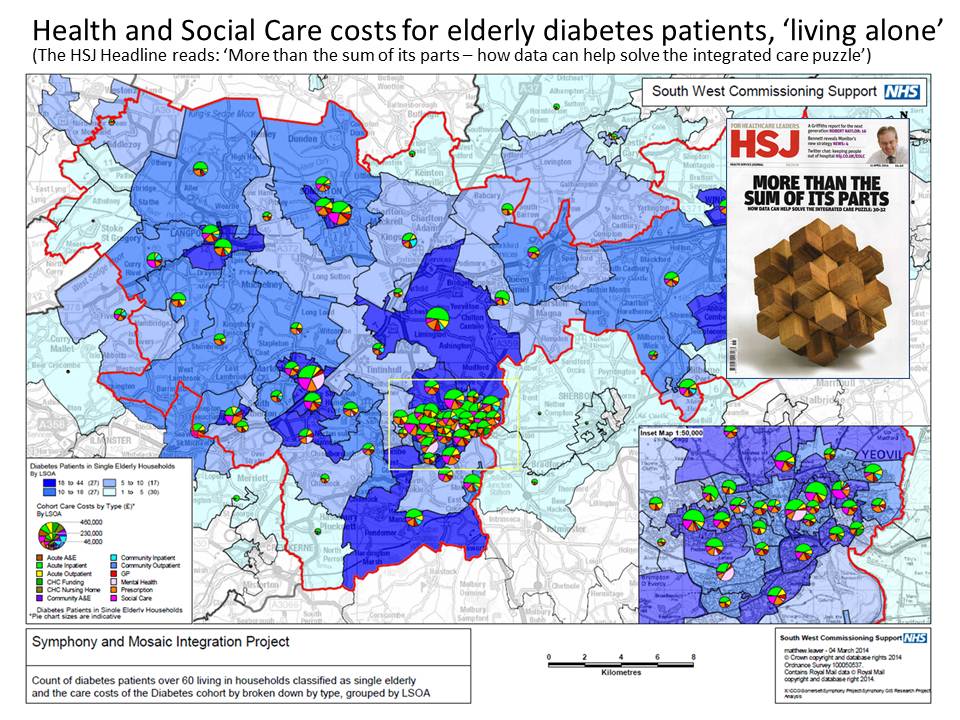What did we deliver?
• We co-ordinated the development of anonymised patient data to support better-integrated health and social care for patients in South Somerset.
• We collected comprehensive health and demographic patient data from Symphony members’ organisations (primary, acute, mental health, community and social care providers in South Somerset) covering one year of care.
• We enriched each patient’s data with a morbidity profile using United Health’s Episode Treatment Group® (ETG®) classification system.
• This resulted in a single picture of the care each patient received, for which types of condition, and at what combined cost across all organisations.
• We supported the University of York’s Centre for Health Economics (CHE) to analyse the data and produce a research paper, enabling the project to draw conclusions from the data and identify their priorities for integration.
How did we add value to the customer? Providing integrated care packages, where the funding follows patients as they move around the system, requires all of the providers in the Symphony Project to work collaboratively. It also requires them to take joint responsibility for delivering outcomes and for financing care packages. By linking conditions, activity and costs, the dataset we built and its subsequent analysis allowed the Symphony team to focus their efforts on the patient groups that would benefit most from integrated care. The data also supports collaboration by helping providers agree appropriate financial contributions. For example, analysis showed that hospital costs for patients with asthma and diabetes typically represent the highest proportion of the total cost of care, while costs for dementia patients are typically highest in mental health and community care. The analysis also showed that care costs are driven more by an individual’s morbidity profile than by age, and those with co-morbidity are more likely to require care across different settings with higher costs. This vital insight into the relationship between co-morbidity and the cost of care provides a solid foundation for integrated care strategies. It also helps to foster the increased collaboration required between care providers, which is critical to delivering better outcomes for patients.
Customer Feedback “Symphony Data is up there with the best, due to the linking of activity and cost data across health and social care organisations and the ability to look at the combination of conditions these patients have.” Andrew Street, Professor of Health Economics at York University

